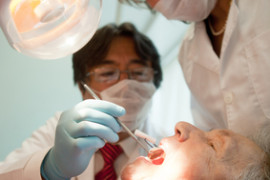Oral bacterial infection can become resistant to periodontal treatment if not addressed, according to a study in the journal Oral Diseases.
The study found that oral bacterium P. gingivalis invades human gingival epithelial cells, eluding the body’s immune response and building up a resistance to future treatment. The study was one of the first to study this phenomenon in human subjects.
Epithelial cells are found throughout the body. One of their many functions is to protect surrounding tissue from damage, including that from invading pathogens. By invading gingival epithelial cells, P. gingivalis is able to remain largely undetected by the immune system, giving it the opportunity to become more resilient against periodontal therapy.
Since this article was first published in September 2004, much research has been done to investigate the ways in which P. gingivalis affects overall health as it travels from the mouth throughout the body:
- P. gingivalis manipulates white blood cells to impair the ability of the cells to kill the pathogen, essentially hijacking the body’s immune system.
- When a P. gingivalis infection is present, Tregs are decreased, therefore inciting an increase in atherosclerotic plaque.
- P. gingivalis and other oral pathogens were found in atherosclerotic plaque.
- P. gingivalis can establish chronic infections that can spread systemically and disrupt the immune response.
Indeed, it seems that P. gingivalis is one of the most harmful oral bacteria that enters the body through the mouth. Of course, more research is needed so that we may better understand and target it, but it must be emphasized that a solid home care routine—combined with regular dental checkups and advanced professional care if necessary—are the first step in reducing the effects of this aggressive pathogen.



